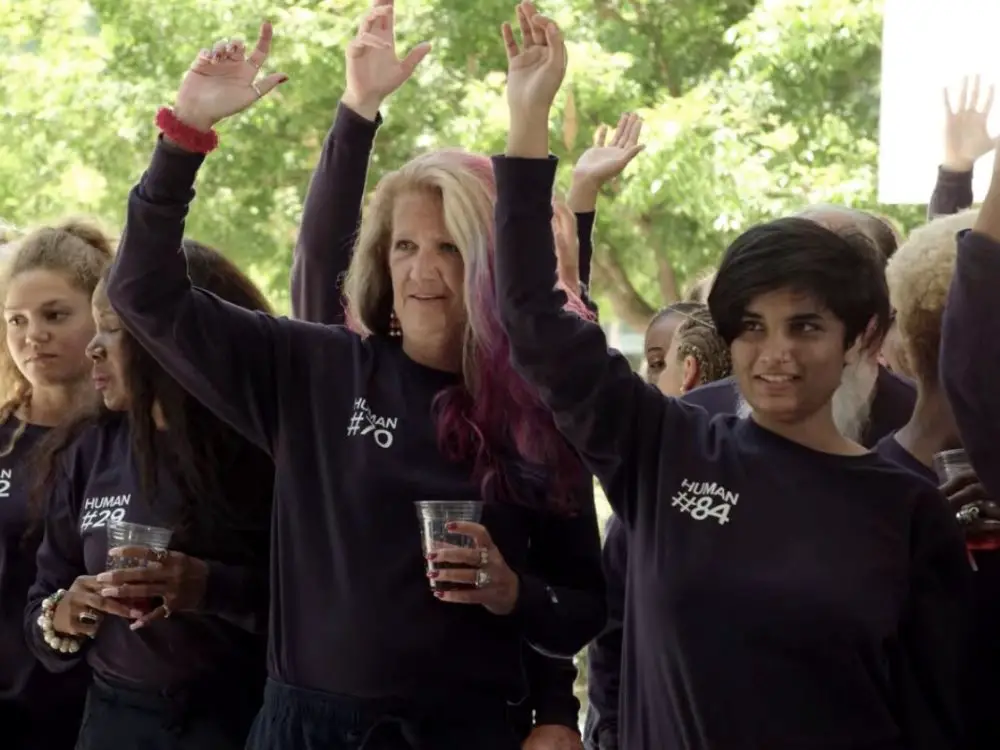Have you ever wondered if being funny makes you more attractive? What about if men or women are better multitaskers? Do you ever think about what really makes people happy? If questions like these are interesting to you, or you love learning the answers to other frequently pondered thoughts, you’ll enjoy watching “100 Humans: Life’s Questions. Answered.” In this show, 100 participants engage in wacky experiments to test different theories about the human experience. Shocking results coupled with engaging fun facts make “100 Humans” an intriguing series worth watching.
The three hosts, Sammy Obeid, Alie Ward and Zainab Johnson, take turns narrating the show and delivering funny (read: cheesy) one-liners between experiments. Their names might not be instantly recognizable, but this is not the first time the actors have been in the spotlight.
With the help of research assistants and a couple of interns, the team works with 100 individuals from across the United States to conduct a variety of experiments. Though the 100 humans used in the series are presumably unpaid volunteers, some famous faces like Ryan Zamo and Avalon Warren were among those participating.
Each episode covers a general subject related to a different facet of human existence (such as gender, happiness, bias, etc.). The experiments within the episode then work toward addressing its overarching theme. One of the best parts about this show is that the distinct 30-minute segments can be watched in any order. For a college student who likes to watch things leisurely and without commitment, “100 Humans” is the perfect choice.
The show covers inquisitive topics like which age group performs better on certain tasks, whether good looks influence those around you and how your moods can affect perception. Every installment of the show contains three or four experiments, and the results are delivered in a daily debriefing at the end of each episode.
“100 Humans” has the participants doing everything from sticking their hands in buckets of ice water to literally watching paint dry. Each experiment is thoughtfully and clearly outlined with a research question that it aims to answer. After each study, the hosts take turns interviewing credible sources, like an evolutionary psychologist, a professor of gender studies and a sociolinguistic expert. In these interviews, the specialists explain the results of the experiment with related background information.
One of the most memorable experiments occurred in the first episode, “What Makes Us Attractive?” Researchers decided to test whether a person in uniform is more attractive than when they aren’t in uniform. To explore this theory, a group of participants went on a “speed dating” round with uniformed actors and then rated their attractiveness. The next batch of participants had the same experience “speed dating” and then rating the actors’ attractiveness, but this time the actors didn’t wear their uniforms. At the end of the experiment, the data showed that women rated the uniformed actors as less attractive, while the male participants thought those in uniforms were equally as attractive as when they weren’t in uniform.
In another amusing experiment conducted on the show, the researchers wanted to see if the 100 humans had any implicit biases. To determine if the individuals were biased toward straight people, they asked the participants to “match up” six actors that consisted of three males and three females. Out of the 100 participants, 99 of them failed to consider that any of the couples could be gay and instead matched up three pairs of heterosexual couples again and again. It was an extremely shocking and thought-provoking result.
Like these experiments, the other ideas they test are interesting to learn about, and the data is just as astounding. The results don’t always follow what the researchers originally hypothesized, which gives the show a sense of authenticity and the element of surprise.
Though the Netflix original series first aired in March, audiences have been slow to warm up to the show. With an IMDb rating of 5.9 out of 10, potential viewers could be skeptical of how this show measures up to other science-based programs like the childhood favorite “Bill Nye the Science Guy.” While “100 Humans” is missing an eccentric scientist running around performing experiments about outer space and volcanos, this show instead uses common questions about the human psyche to take science to a slightly more mature level.
However, if viewers go into the show expecting strict scientific procedure, they will be sadly disappointed. Though “100 Humans” attempts to adhere to the scientific method in each of their experiments, there are some faults that stand out. As a psychology major and prior lab assistant, it was easy for me to see how the show violated research protocol to keep audiences watching.
For starters, in a standard experiment, the participants would be unfamiliar with the colleagues they will be working with, which is not the case for “100 Humans.” Over the course of the season, the participants interact with one another and become friends. While this is great for boosting morale, the intimate nature of their relationships could possibly affect the data. Similarly, the individuals participating are meant to represent a “cross-section of American society,” but with only 25 members in some groups, it is hard to generalize those findings to the public.
Regardless of whether the show is legitimately scientific or not, the captivating experiments and the hilarious participants are enough to keep you wanting more.
While “100 Humans” does contain a few scientific fallacies and over-sensationalized antics, the genuine reactions from the participants and interesting findings outweigh any negative qualities the show might possess. Whether you binge-watch all eight episodes in one sitting or spread them out over the next month, seeing other humans participate in nonsensical experiments is sure to keep you entertained while you patiently wait for a second season.
















